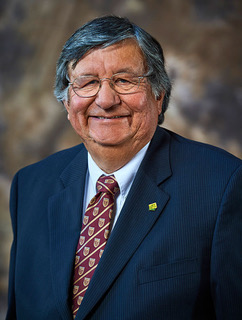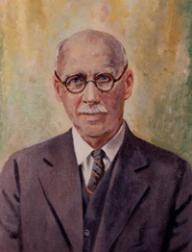The five-member class of 2018 will be honoured at an event in June
By Diego Flammini
News Reporter
Farms.com
The five inductees into the Ontario Agricultural Hall of Fame’s class of 2018 include an early farm leader, growers and industry advocates.
Barry Hill, a farmer from Brant County, is being recognized for his work within the First Nations Community. The resident of the Six Nations Reserve helped form the First Nations Agri Group Co-op, which helps members receive rebates on input purchases.
He’s also a past-president of the Ontario Soil and Crop Improvement Association. Come June 10, he will add hall of famer to his resume.
“I’m totally overwhelmed” by the induction he told Farms.com today. “I’m absolutely bowled over when you consider who else is in the group.”
Hill’s on-farm accolades include producing Brant region’s first soybean crop in 1979. He grew it in hopes of meeting his community’s dietary needs.
“Many First Nations people are lactose intolerant, so we thought soy milk was going to be a hit,” Hill told Farms.com today. “The problem was I couldn’t get anybody to harvest the soybeans (and) I didn’t have a combine.”

Barry Hill
Now 75, Hill became a full-time farmer at the age 50. He grows 2,600 acres of corn, soybeans and wheat. Earlier in his career, he used farming to relax after days within the engineering sector.
“I grew up on a farm, but I went away to become an engineer because there was no future in farming in the 1960s,” he said. “I was living in Toronto and taking correspondence courses from the University of Guelph. Sometimes I’d drive out to the farm after supper and plow until midnight.”
Hill can also recall a time when members of the community thought cash cropping wasn’t a viable way to make a living.
“I remember I had a job (constructing highway) 401 and people in the coffee shop would say there was no way to make a living just growing corn and that farmers needed livestock to succeed.”
Hill has started to scale back his operation and is letting a local young farmer use some of his land.
And Hill shared a few lessons for young producers to consider.
“Don’t go too fast,” he said. “Farming is a long, slow growth and technology can change a lot. It’s also important to know your costs and to control your ambition within what you can afford. There’s nothing wrong with retained earnings.”
Farmers who produce alternative crops should consider investing in storage because marketing some of those commodities can be challenging, he added.
Another inductee will finally take his rightful place in the Ontario Agricultural Hall of Fame after being inducted into the Canadian Agricultural Hall of Fame in 1962.

James J. Morrison
Many of James J. Morrison’s accomplishments centre on the United Farmers of Ontario (UFO), which he helped create in 1914. By 1919, the UFO had won the Ontario election and formed a coalition government with labour party members of provincial parliament.
Morrison also helped found the United Farmers’ Co-operative Company (now the Ontario Co-operative Association) and worked with the UFO to form the Ontario Chamber of Agriculture.
That organization evolved into the Ontario Federation of Agriculture.
Given his contributions to Canadian agriculture and his prior induction into the national agricultural hall of fame, it’s good to see Morrison take his rightful place at the provincial level said Ron Hattle, president of the Wellington County Historical Society. (The organization which nominated Morrison for induction.)
“It’s great news,” Hattle told Farms.com today. “He’s done all of these things that should’ve been honoured in Ontario and it was brought to our attention that he wasn’t in Ontario’s hall of fame. … It’s going to be great to see him go into the hall of fame.”
The other inductees are:
- William Beaty, a farmer and founder and chairman of Cold Springs Farm,
- Harvey Graham, a director and president of the Ontario Cattlemen’s Association (now Beef Farmers of Ontario) who helped establish the Ontario Feeder Cattle Loan Guarantee Program, and
- Gordon Leitch, general manager of the first elevator on the Toronto waterfront, which grew into Masterfeeds Inc., rounds out the inductees.
Farms.com extends its congratulations to all of the nominees and their families.